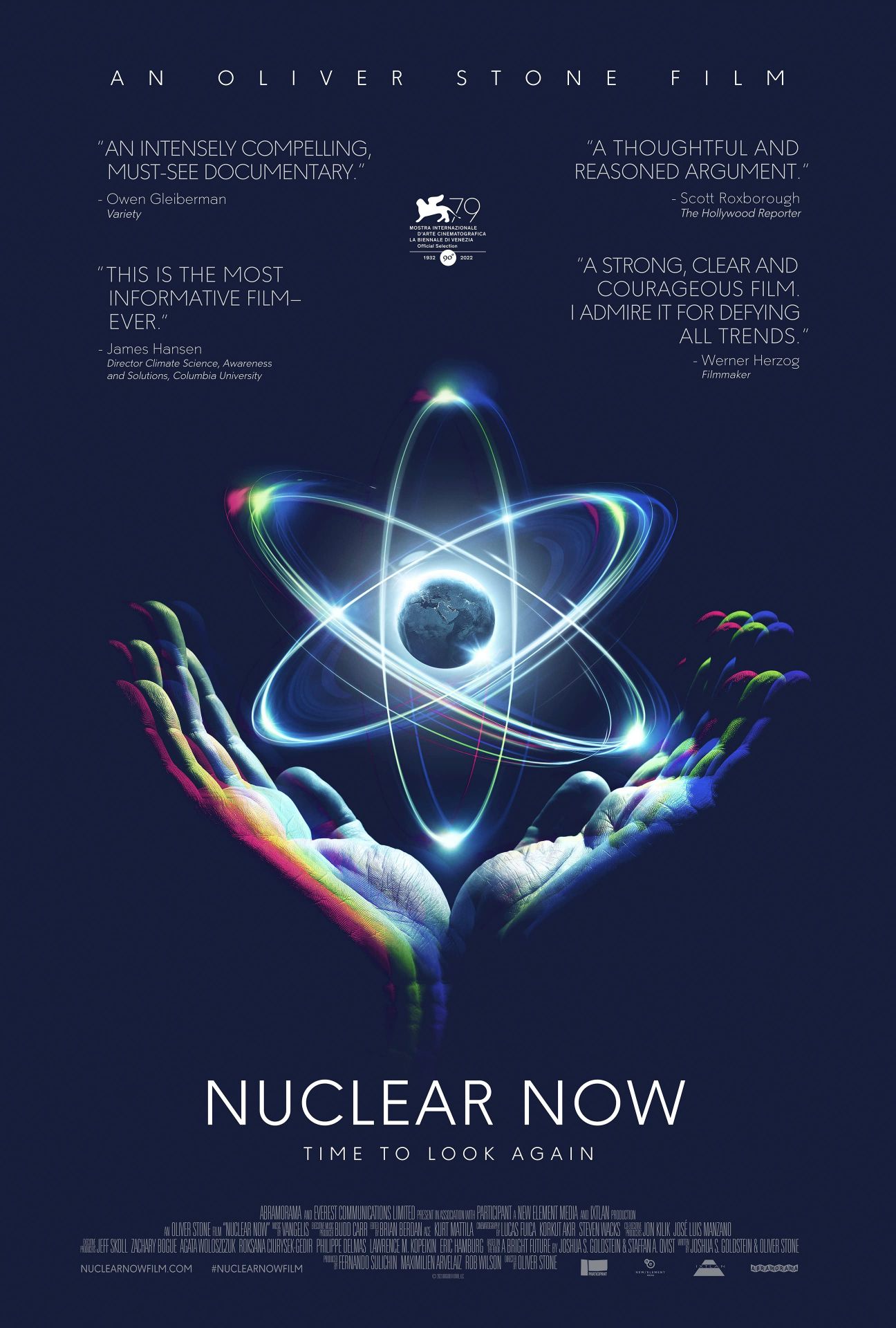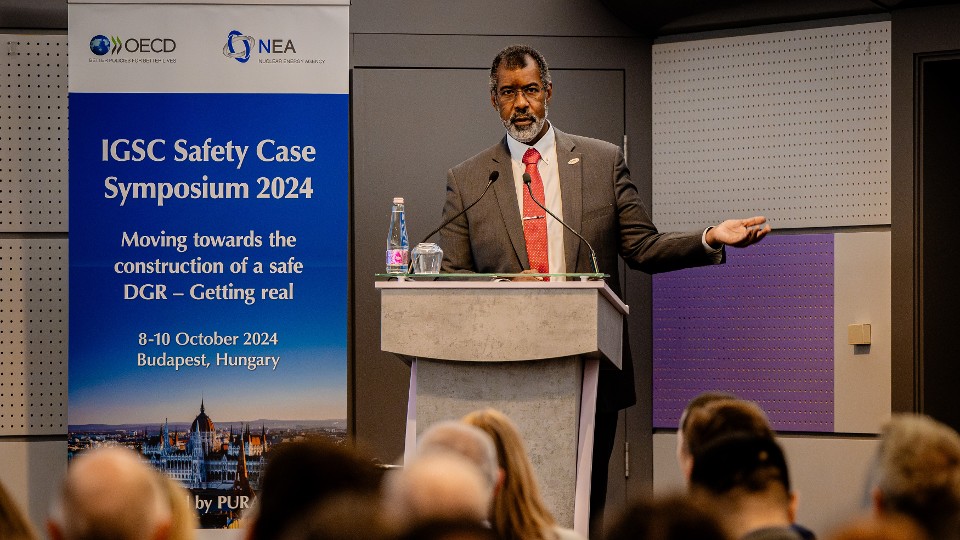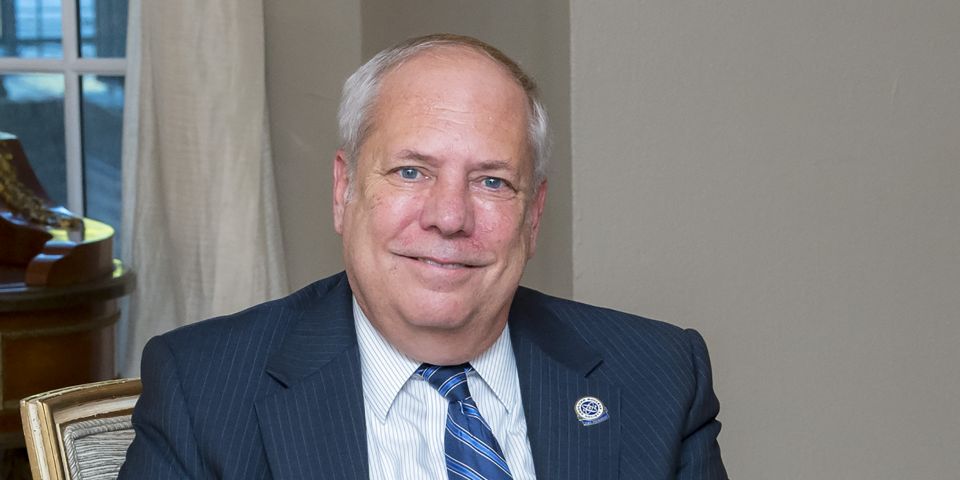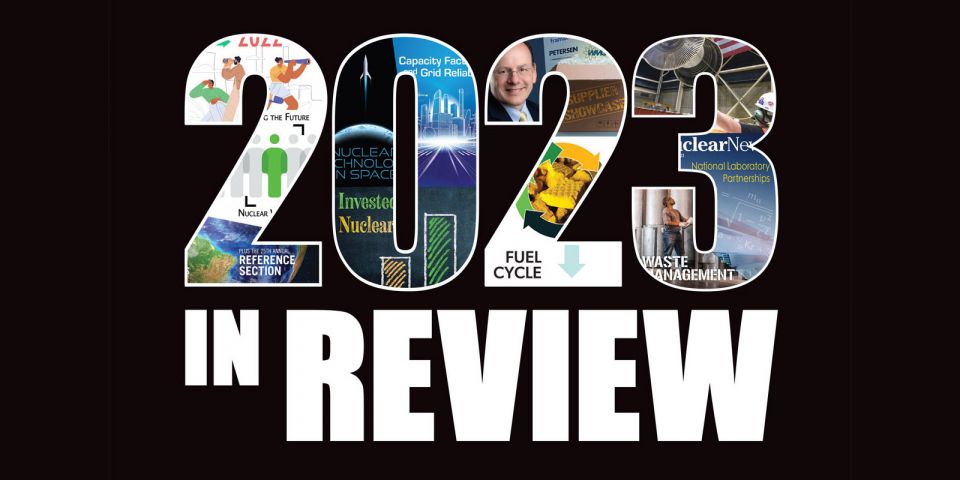Discussion at Harvard: In an article published in the Harvard Gazette, staff writer Anna Lamb describes a panel conversation about nuclear energy that Stone recently participated in following a preview of the film at the Harvard University Science Center. Harvard psychology professor Steven Pinker introduced the screening by praising Stone as “an icon of Hollywood” who “is taking an active role in changing public consensus about nuclear power.” The film, notes Lamb, addresses public safety fears about nuclear energy by pointing out that new reactors have corrected the accident-related designs of earlier reactors and that “despite [previous] Hollywood portrayals, meltdowns in Chernobyl, Three Mile Island, and Fukushima have led to far fewer casualties than the fatal levels of air pollution produced annually by coal and other fossil fuels.”
The money aspect: Much of the panel discussion at Harvard centered around the issues of cost and economics, with Stone and Nuclear Now co-writer Joshua S. Goldstein arguing that the nuclear industry is working to address high production costs. Goldstein highlighted the case of South Korea, which has successfully reduced the capital costs of plant construction through sustained nuclear development programs and repetition of production processes. “In South Korea, they’re building the same thing over and over, and cost comes down,” he said.
Panelist Richard Lester, an associate provost at the Massachusetts Institute of Technology and an American Nuclear Society member, added that another way the nuclear industry can reduce production costs is through greater innovation. Unfortunately, “the regulatory game” in the United States, as Lester called it, leads to high costs and long delays for innovative nuclear startups.
The panel moderator, Harvard environmental science and engineering professor Daniel Schrag, emphasized that even with success overseas, cost estimates for construction of new reactors in the United States remain in the tens of billions of dollars. He argued that nuclear “requires somehow a big change in the economics” if it is going to have a significant effect on the climate change problem.
Public opinion: Stone’s expressed goal with Nuclear Now is to create a more positive public perception of nuclear energy. But the public’s view of nuclear power has seemingly been shifting in that direction, anyway. During the Harvard panel discussion, audience member John Marshall, the chief executive of the Potential Energy Coalition on climate change, noted that his organization conducted a public opinion survey in 2021 that suggested that only one in seven people opposed nuclear energy.
Conversation continues: Nuclear Now will no doubt be sparking new conversations about nuclear energy across the country and throughout the world as Stone continues his promotional appearances for the film. Another interesting discussion about Nuclear Now—featuring Stone, Goldstein, NASA physicist Weiping Yu, and radio/podcast host David Gornoski—is now available on Gornoski’s YouTube channel.
 Academy Award–winning director Oliver Stone has long courted controversy with such films as Born on the Fourth of July, JFK, Natural Born Killers, and Nixon. His latest release is sure to continue that trend. In Nuclear Now, which opens today in theaters nationwide, Stone “explores the possibility for the global community to overcome the challenges of climate change and energy poverty to reach a brighter future through the power of nuclear energy,” according to the movie’s website.
Academy Award–winning director Oliver Stone has long courted controversy with such films as Born on the Fourth of July, JFK, Natural Born Killers, and Nixon. His latest release is sure to continue that trend. In Nuclear Now, which opens today in theaters nationwide, Stone “explores the possibility for the global community to overcome the challenges of climate change and energy poverty to reach a brighter future through the power of nuclear energy,” according to the movie’s website.




